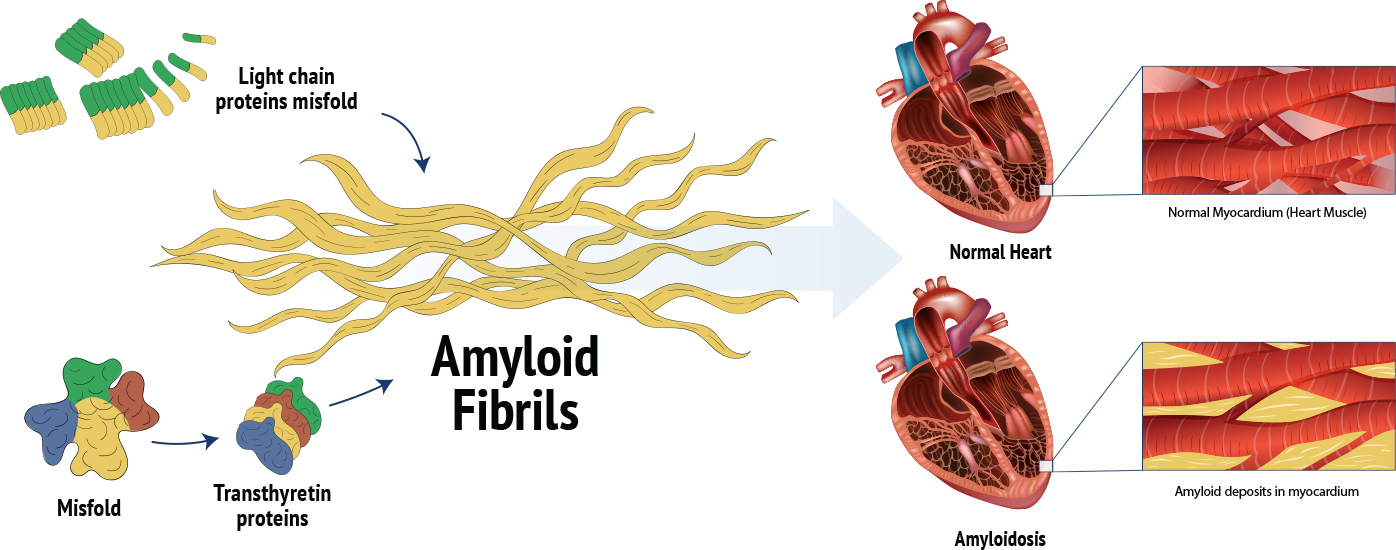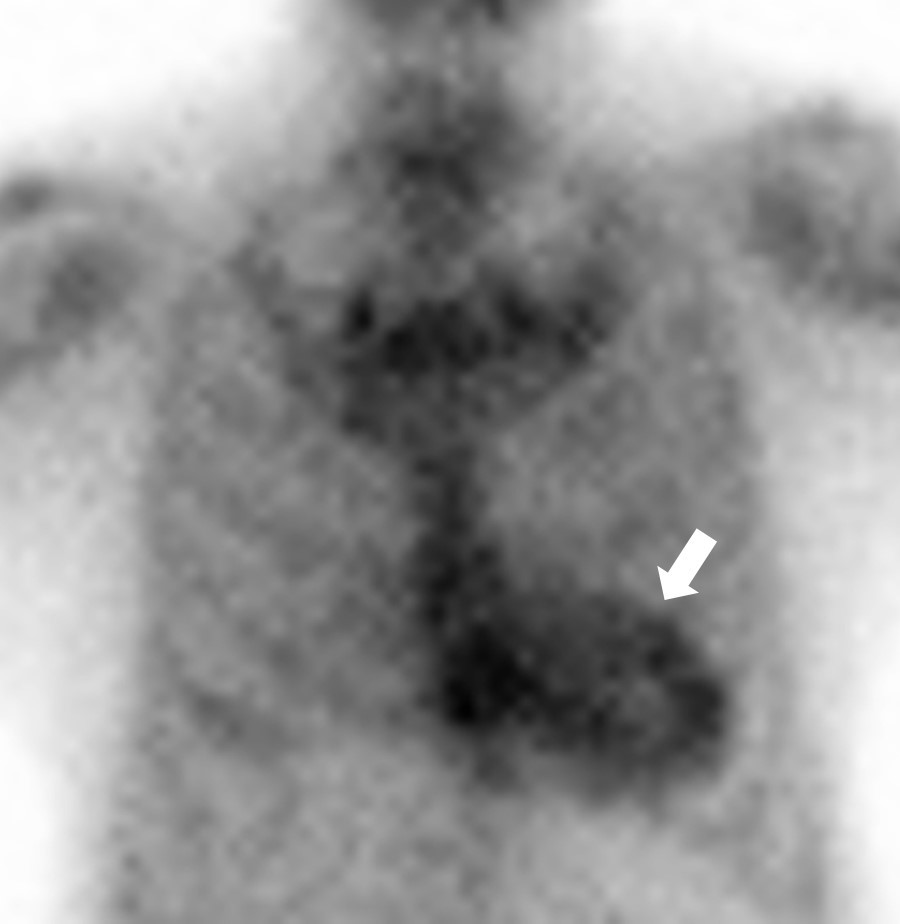NUHS Institutions will NEVER ask you to transfer money or disclose bank details over a call.
If in doubt, call the 24/7 ScamShield helpline at 1799, or visit the ScamShield website at www.scamshield.gov.sg.
Amyloidosis is a disorder caused by misfolding of intrinsic body proteins. These misfolded proteins are insoluble and are termed 'amyloid proteins'. Amyloid proteins can deposit in various body organs, resulting in organ dysfunction. When these amyloid proteins deposit in the heart, it causes heart dysfunction, term 'amyloid cardiomyopathy' or 'cardiac amyloidosis'.
The 2 proteins responsible for most amyloid cardiomyopathy cases are:
Light chain amyloidosis is caused by an abnormal proliferation of bone marrow cells that produce immunoglobulin light chain proteins. On the other hand, transthyretin amyloidosis is caused by either a mutation in the gene coding the transthyretin protein ('hereditary transthyretin amyloidosis') or due to aging ('wild-type transthyretin amyloidosis').

Other common conditions associated with amyloid cardiomyopathy include
Amyloid cardiomyopathy is diagnosed by cardiologists, by integrating various clinical information, including
Patients will be put on diuretics ('water pills') to reduce the chance of fluid retention. Medications that can potentially lower the blood pressure or heart rate excessively, will be also discontinued.
Light chain amyloid cardiomyopathy (AL-CM)
Transthyretin amyloid cardiomyopathy (ATTR-CM)
Since ATTR-CM is a potentially inheritable condition, a detailed family history will be obtained. ATTR-CM patients will be encouraged to undergo genetic counselling and genetic testing, to identify if their condition is caused by a gene mutation. Family screening will also be encouraged.
The Cardiomyopathy Clinic at the National University Heart Centre, Singapore (NUHCS) provides a comprehensive evaluation and treatment service for patients with amyloid cardiomyopathy. Our multi-disciplinary amyloidosis team consists of haematologists and neurologists specialised in managing amyloidosis patients.

Technetium pyrophosphate nuclear scan for a patient with transthyretin amyloid cardiomyopathy (ATTR-CM), showing strong tracer uptake in the heart muscles (white arrow). This indicates the presence of transthyretin amyloid proteins in the heart.